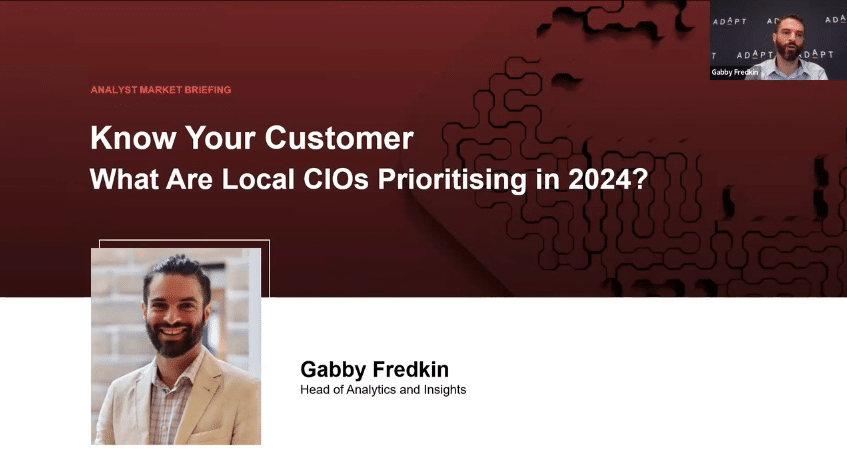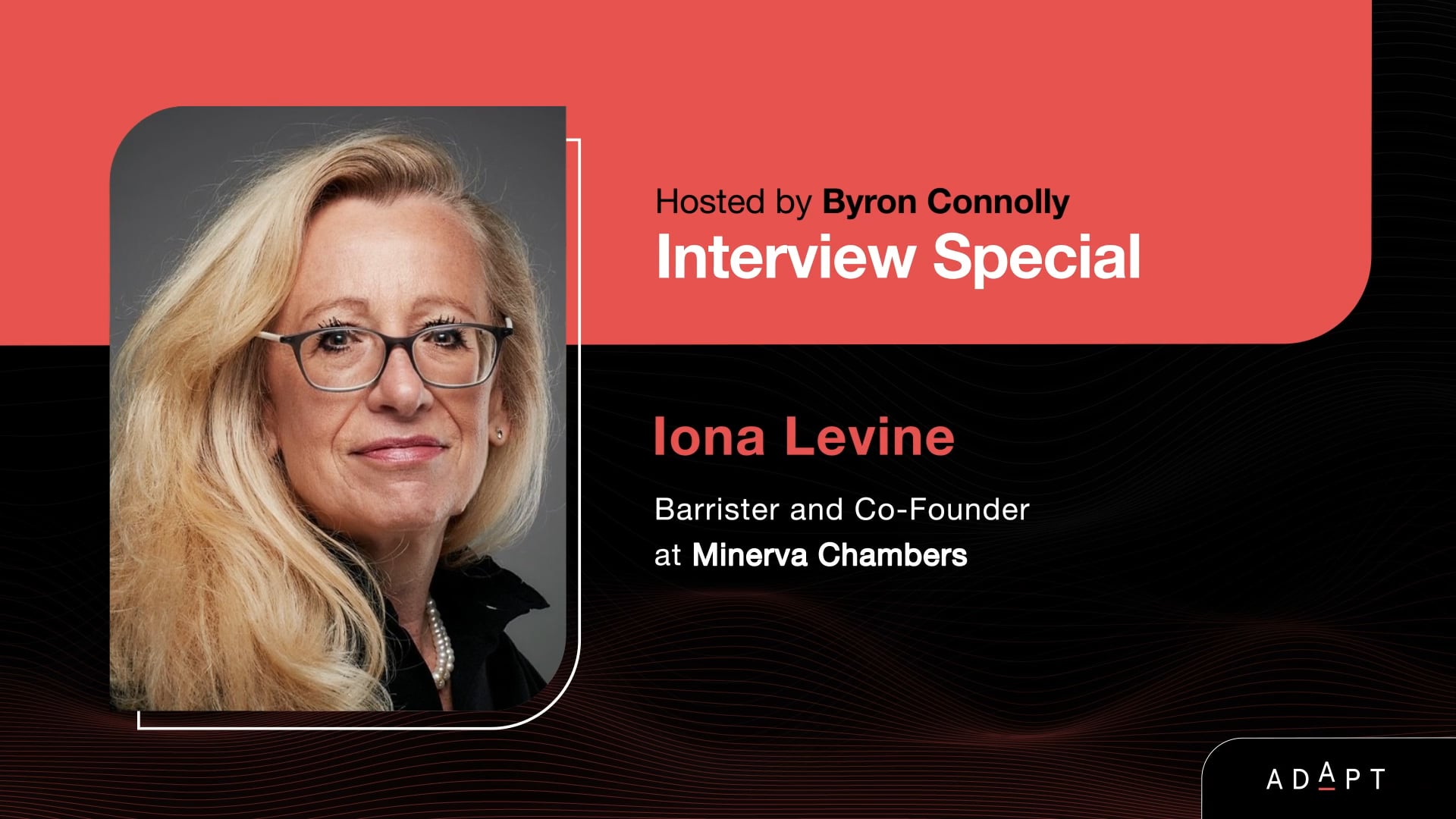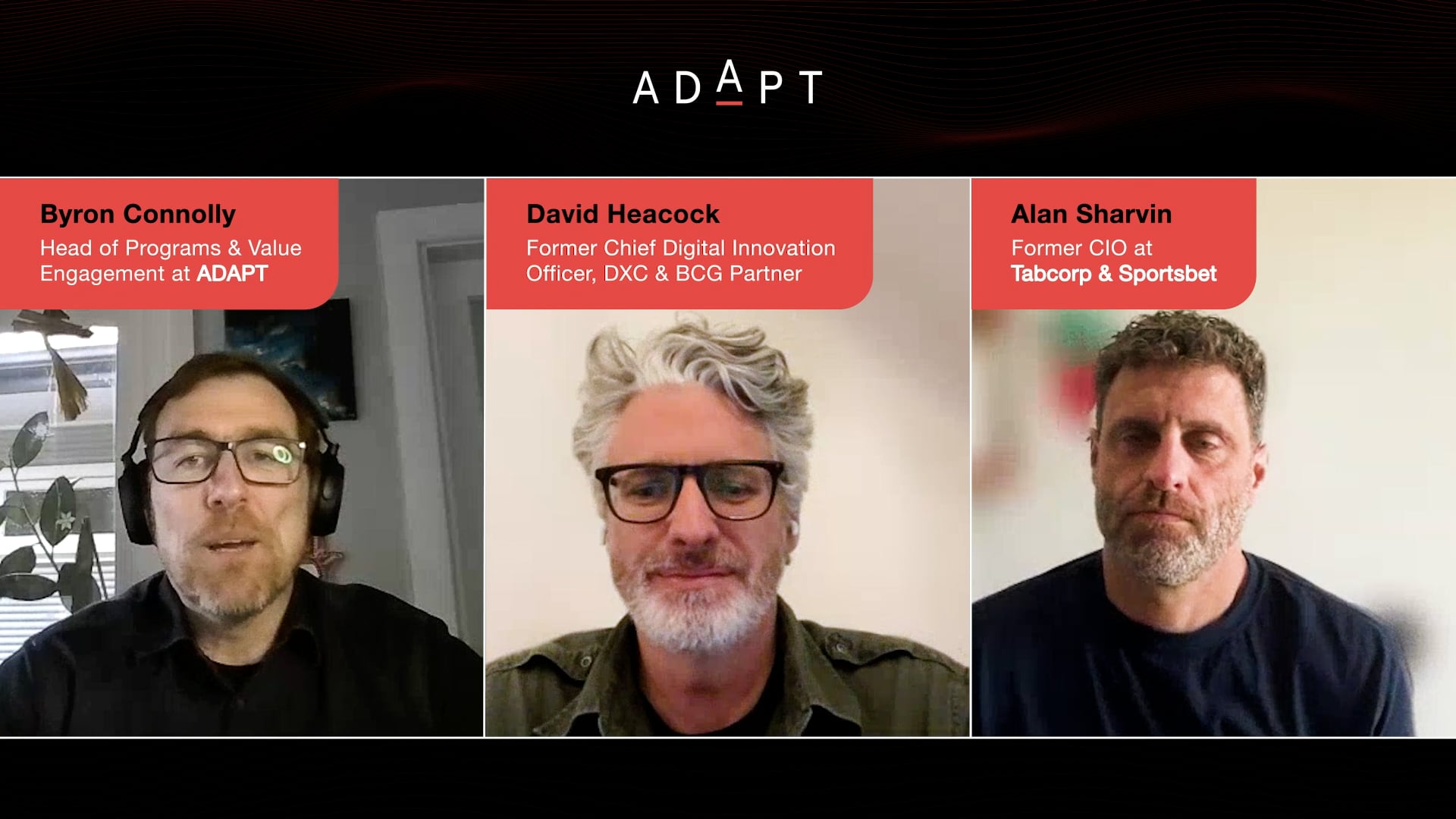ADAPT’s recent webinar, “Know Your Customer: What are Local CIOs Prioritising in 2024?”, offered a detailed look into the strategic priorities and challenges that Chief Information Officers (CIOs) across Australia are navigating.
Facilitated by Gabby Fredkin, ADAPT’s Head of Analytics & Insights, drew on feedback from over 180 CIOs from enterprises that cover over a quarter of Australia’s GDP and employ about 8% of the Australian workforce.
The above video is only an excerpt.
ADAPT’s Research and Advisory Advantage clients can watch our full webinar.
Register to access the full webinar recording: Know Your Customer: What are CIOs Prioritising in 2024?
Streamlining tech for tomorrow
The session kicked off with a clear message: CIOs are laser-focused on modernising and simplifying their technology landscapes.
With about 60% of their resources earmarked for these initiatives, it’s evident that there’s a strong push to ditch clunky, old systems that slow down progress and frustrate employees.
Security as a starting point
One standout revelation was CIOs proactive stance on cyber security.
Gone are the days when security measures were an afterthought. Today, they’re foundational, baked into projects from the get-go.
This shift is largely influenced by new regulations holding boards accountable for breaches, pushing cyber security up the priority ladder.
Automation and AI at the forefront
Automation and AI are now indispensable tools for CIOs looking to boost efficiency and enhance decision-making.
These technologies are instrumental in automating routine tasks and offering insights that drive strategic decisions, demonstrating just how much machine learning and intelligent automation are changing the game.
Refreshing the old to embrace the new
Updating infrastructure and ERP (Enterprise Resource Planning) systems is also a focal point.
The challenge lies in upgrading systems that are obsolete while ensuring that new technologies support current digital demands without disrupting ongoing business operations.
Bridging the resource gap
The webinar also highlighted a stark resource deficiency among CIOs—70% report being understaffed or lacking necessary resources.
To meet even their fundamental commitments, there’s a reported average need for a 34% increase in resources.
This will potentially drive up the demand for impactful, easy-to-use, and budget-friendly solutions.
Key Takeaways:
Prioritising Modernisation: Updating technology is essential for maintaining agility and responsiveness in a rapidly changing environment.
Security from the Start: Integrating comprehensive cyber security measures from the beginning of IT projects is critical, influenced by stringent regulatory requirements.
Harnessing Automation and AI: Employing technology to automate and innovate is key to gaining a competitive edge, enhancing processes, and increasing efficiency.
Revamping Legacy Systems: Upgrading outdated systems that hinder digital transformation efforts is crucial for enabling modern business operations.
Resource Efficiency: Addressing the gap in necessary resources is vital, highlighting the need for innovative, cost-effective solutions that deliver good returns.
The above video is only an excerpt.
ADAPT’s Research and Advisory Advantage clients can watch our full webinar.
Register to access the full webinar recording: Know Your Customer: What are CIOs Prioritising in 2024?


























